No one likes to take responsibility for the bad things that happen. It is easiest to blame someone else. We accept accolades for success but always shift the blame for the failures. If that is true of individuals it is just as true of the institutions we build. Families, governments, corporations, schools, even churches. It is the root of social diseases ranging from extraneous litigation to alcoholism. In that way, Flight is pertinent and hard-hitting. Not just because it deals with alcohol addiction, but because it deals with the root of addiction: the refusal of culpability. And, even though it paints a far-reaching societal portrait, it is also bold enough to admit that there is a way beyond it.
If Flight were only a picture of functional alcoholism I don't think it would be a great film. It would seem cold and unnecessarily dramatic (even offensive), by putting the struggle with alcohol in the midst of a larger story of tragedy and accidental heroism. But I think Flight is a great film because it paints the refusal of culpability inherent in alcoholism on a broader canvas, thereby implicating corporations, savvy business men, lawyers, lawmakers, and all Americans, hard-working or not.
Whip Whitaker is a good pilot. He is also a good alcoholic. He denies his problem, feels like he can quit anytime he wants and has even learned to counter the affects of heavy bingeing by snorting cocaine to help him gain a degree of control over his senses and effectively act and feel normal. He does this before flying a commercial jetliner from Orlando to Atlanta on a rainy day. Taking off in rain is nothing new. To get out of the storm, he is able to impressively maneuver the aircraft in between a band of thunderstorms and into the smooth air above the clouds. Everything seems to be fine. Auto-pilot comes on, Whip secretly has two bottles of vodka in orange juice. It is a short flight. During the descent there is a malfunction with the aircraft and, through an amazing combination of levelheadedness and boldness, Whip is able to take a free-falling aircraft bent on certain destruction and turn it into a massive glider that crashes outside of a populated area, killing only five passengers and one crew member.
It is a bravura 30 minute sequence of deft control by Zemeckis, building suspense through a taut organization of visual information and frightening sound design. It is essential that it be memorable and scary, clearly organized yet feeling chaotic. He also refuses many expressionistic touches, instead trying to keep the action mostly within the realm of his immersive aesthetic. (As someone concerned about the wrong use of terminology, I would call it Hollywood Naturalism, though most average movie-goers simply call it realism or say it "feels very realistic". I disagree with that terminology and have highly conflicted notions about realism in cinema anyway, but I'll leave that digression for a different time and a different film.) As usual for a Zemeckis film, the visual effects are well-integrated within the visual text of necessary action, nothing appearing for it's own sake and often using more complicated technical plotting (camera moves, actor placement, etc) in order to achieve his desired effect, the end result being inclusive action felt by the audience as deeply as it is seen.
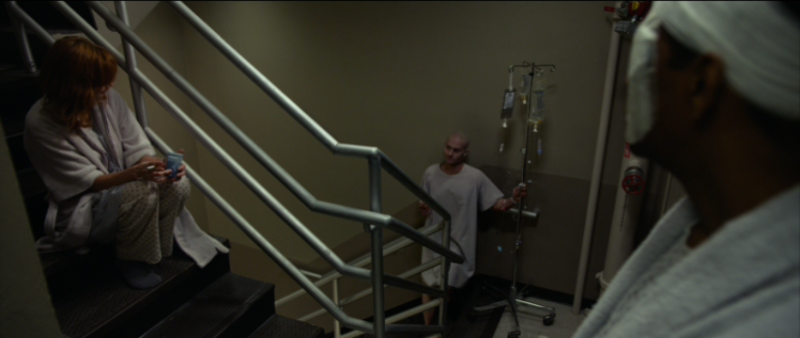 |
| In another great scene, Whip visits with two other hospital patients. One a heroin addict going through de-tox, one a terminal cancer case who embraces his fate. |
This is an interesting takedown of hero worship. Heroes are lucky in a moment and then hailed as geniuses in their field. Sometimes they may be true geniuses who rise to the moment, sometimes they aren't, but even the greatest heroes are human. No one else could have landed that plane in the way Whip did, but that doesn't mean Whip could ever replicate it either (the union rep admits that they have not been able to find another pilot to simulate a crash under the same conditions and get the same results). He got lucky and now he treats it as entitlement.
When John Goodman's character makes his first appearance to the Rolling Stones song "Sympathy for the Devil," it feels at first as if a sinister presence has entered the film, though Zemeckis undercuts this by having Goodman play his role more comically. It is not until Goodman's final appearance that we understand that the song he was listening to on his iPod spoke the truth: his character's dual function is to tempt and enable Whip. The night before the hearing, Whip has been locked in his hotel room with a guard at his door to keep him from going out and drinking that night. He is to stay in his room, memorize the suggested "non-incriminating responses" written by his lawyer and get a good night's rest. As he is lying in bed, he hears the light tapping at the door to the adjacent hotel room. The door was never properly closed and it affords Whip his greatest temptation yet. The room is stocked with a full minibar. He desperately struggles with himself in another wonderfully controlled scene by Zemeckis before finally giving into his temptation (and then some). He drinks that night and is desperately hungover the next morning when the union rep and lawyer arrive. Thankfully for Whip's functionality, John Goodman's character is already on the way to provide a couple of lines of cocaine. His good ol' boy personality creates an uncomfortable interplay between the lawyer/union rep and the enabler/enabled. They are helpless to stop Whip and, the truth is, they need Whip to be as lucid and sharp as they can get him. He insists the cocaine will help him gain control over his faculties. Their moral culpability now goes out the window in service of getting the greater good: Whip's non-incriminating testimony.
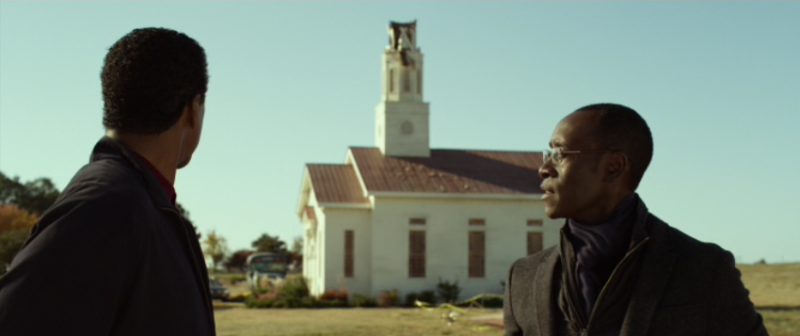 |
| Though not dealt with in full, God is another easy scapegoat for those affected by the disaster, particularly for a man who would never blame himself. |
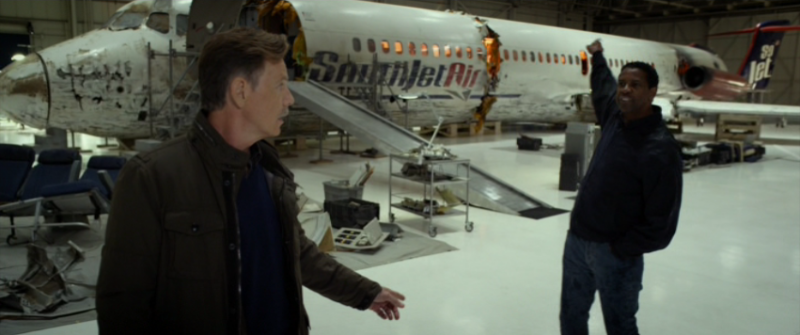 |
| Those willing to help Whip find themselves alienated as he continues to hoist himself up as the most capable pilot around. |
This ending has been unfairly criticized by critics and cynical cinephiles as Hollywood pap, refusing to give audiences a bold amoral ending in favor of moral responsibility. But I find it to be bold and truthful within the story it is telling and all that narratively came before it. Sure, Whip could have lied and then we are met with the frustrating reality of justice being a thing controlled by corporations to guard their interests. And there is truth in that ending and that could have been an equally challenging and interesting film (though the earlier parts of the story should have been rewritten to subtly reflect that change in theme). I have even read one person give such a scathing critique of the ending that they call it offensive and irresponsible because of Whip's selfishness in admitting his addiction publicly, an ending that, to them, is "insulting to common sense and decency." I think that is a frighteningly cynical way of seeing things. I'm not sure when ambiguity or cynicism in art became inherent virtues. We hate it in politics, why would we cherish it in art? They are means that can express ideas, means that, I think, didn't need to be fully implemented here.
The beauty of Flight's ending is in its far-reaching consequences. Certainly, I assume the airline and the union were affected in some ways by Whip's decision, but that is left ambiguous. It was a malfunction that caused the crash, but that does not alleviate Whip's irresponsible behavior simply because it happened to turn out to be a good thing in this one-in-a-billion instance. Whip takes responsibility for his life and will suffer the consequences. He may be sued by families of victims, he may be vilified in the media, he will certainly never be able to fly an airplane again. Despite Whip's confession to his fellow inmates of his own culpability, how do we know Whip has truly changed? He has made empty promises before and then turned back.
We know he is different now because of his son. If Whip were the same as before, he would have proudly scoffed at the notion that his son doesn't know him, he would justify himself by listing all the things he did for his son. But now he embraces this tiny opportunity as a chance to start righting the wrongs he has inflected on his family. We can know that even though alcohol may be a struggle for the rest of his life, Whip has moved beyond the empty promises to do better and now humbles himself. The redemption may not be on the grand scale yet, but there is at least personal change. Who knows where that could lead?
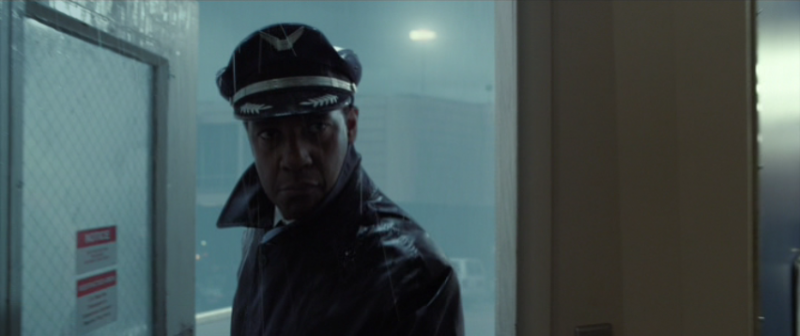
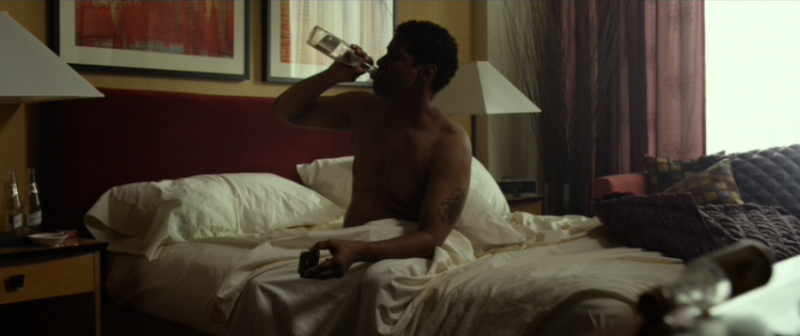
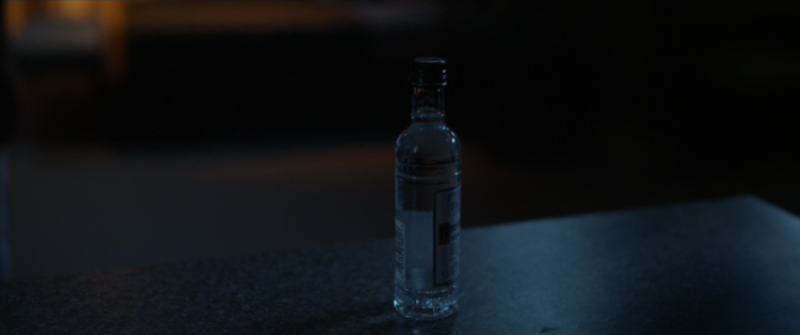
No comments:
Post a Comment